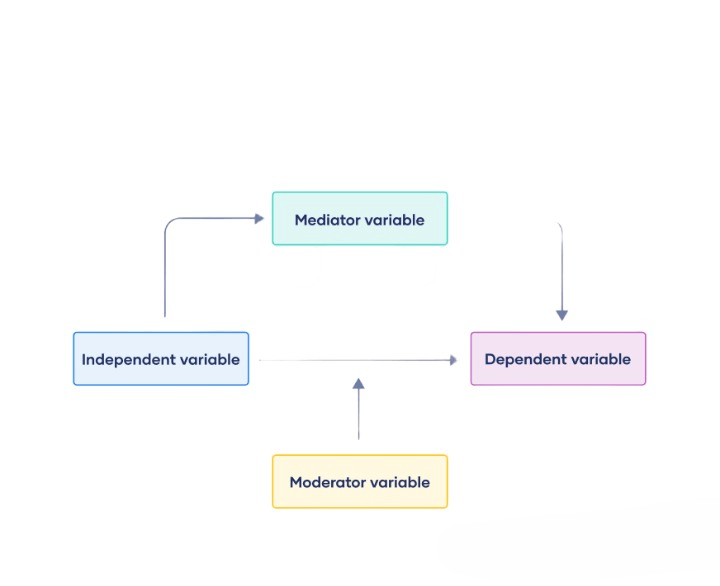The Similarities and Differences between Mediation and Moderation Analyses

Researchers use moderation and mediation analyses as two statistical techniques in the field of causal inference. But they both serve different purposes and have distinct characteristics. Understanding the similarities and differences between these two techniques is vital when choosing the appropriate method.
Need help conducting your analysis? Leverage our 30+ years of experience and low-cost same-day service to complete your results today!
Schedule now using the calendar below.
Mediation analysis examines how an IV influences a DV through a mediator. This analysis aims to uncover the underlying mechanism or pathway that explains the effect of the IV on the DV. Researchers use structural equation modeling to focus on the causal connections from the IV to the DV through the mediator.
Moderation analysis examines when the effect of the IV on the DV changes. It identifies a moderator that changes the strength or direction of the IV-DV relationship. Researchers typically use multiple regression analysis to highlight when the IV’s impact on the DV varies.
Both mediation and moderation analyses help dissect the causal relationships between variables, but they serve distinct functions. Mediation explains the pathway through which an effect occurs, answering the “how” and “why” of the IV-DV relationship. Moderation examines when the IV-DV relationship changes, revealing the effect’s context.
Mediation analysis clarifies how the IV impacts the DV through a mediator. Moderation analysis explores how a moderator alters the relationship between the IV and DV. Mediation outlines the causal pathway between variables. Moderation highlights the conditions that affect the strength of these relationships.
In summary, researchers use mediation and moderation analyses as key statistical methods for causal inference, each serving unique purposes and approaches. Mediation analysis delves into the mechanism by which the IV affects the DV through a mediator, whereas moderation analysis determines the conditions that alter the IV-DV relationship. Recognizing the distinctions and similarities between these techniques is crucial for selecting the most appropriate analytical approach in research.
Healthcare Example: Mediation Analysis
Scenario: Researchers want to understand how a new physical therapy program (independent variable) improves patients’ mobility (dependent variable) after knee surgery. They suspect that the improvement in mobility is due to increased muscle strength (mediator) that the therapy program promotes.
Mediation Analysis: The researchers set up a study to measure patients’ muscle strength throughout the therapy program. Using mediation analysis, they aim to demonstrate that the physical therapy program directly increases muscle strength, which in turn leads to improved mobility. This analysis would help in confirming that the key mechanism by which the therapy program enhances mobility is through strengthening muscles. If the mediation is significant, it supports the conclusion that muscle strength is a crucial intermediary in the recovery process.
Social Science Example: Moderation Analysis
Scenario: A study is designed to examine the effect of a new educational program (independent variable) on student performance (dependent variable). Researchers hypothesize that the effectiveness of the program varies by the initial skill level of the students (moderator).
Moderation Analysis: In this case, multiple regression analysis is used to assess how the relationship between participation in the educational program and student performance differs across students of varying skill levels. The analysis might reveal that the program significantly improves performance for students with lower initial skill levels but has less impact on students who already possess high skill levels. This moderation analysis underscores the importance of considering initial skill level as a critical factor that influences the program’s effectiveness.
These examples illustrate how mediation and moderation analyses can be utilized to gain deeper insights into the mechanisms and conditions under which specific interventions or programs exert their effects. In healthcare, mediation analysis helps unravel the processes underlying treatment outcomes, while in social science, moderation analysis sheds light on the contexts that enhance or diminish the effectiveness of educational programs.
Additional Resources
What is the difference between moderation and mediation?
Modern Approaches to Moderation and Mediation

We work with graduate students every day and know what it takes to get your research approved.
- Address committee feedback
- Roadmap to completion
- Understand your needs and timeframe